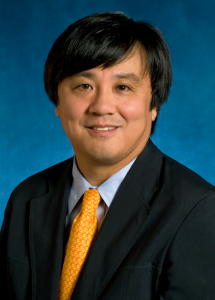
Since 2012, Mitsubishi Tanabe Pharma Corporation and Johns Hopkins have collaborated to identify early-stage biomarkers for psychotic disorders in young adults. The results of this five-year collaboration may help doctors more accurately diagnose and identify the best course of treatment for those suffering from psychosis, such as those with schizophrenia, bipolar disorder and other psychotic disorders.
The relationship between Mitsubishi and Johns Hopkins stems from the unique challenges inherent to this area of drug development. Effective treatments have proven elusive because psychotic disorders are biologically heterogeneous, meaning several factors can be attributed to their development.
“The gap between reliability and validity in diagnosis has long confused pharmaceutical companies,” says Dr. Akira Sawa, director of the Johns Hopkins Schizophrenia Center and professor of psychiatry, mental health, neuroscience and biomedical engineering in the Johns Hopkins University School of Medicine and Bloomberg School of Public Health. “They try to make the drug for schizophrenia, but the nosological concept of schizophrenia is not supported just by biology.”
Sawa has led a research coalition of several departments from across the Johns Hopkins University School of Medicine, and will soon present to Mitsubishi Tanabe the five most promising molecular candidates for their drug screening targets. While the results could mean better care for those suffering psychotic disorders, a particularly unique component to this collaboration could facilitate future industry-academic relationships.
In addition to working with Johns Hopkins colleagues as part of his departmental coalitions that include scientists and clinicians from psychiatry, neurology, radiology, neuroscience, biomedical engineering, dermatology, otorhinolaryngology and pediatrics, Sawa has trained two data scientists and four wet bench scientists from Mitsubishi Tanabe as postdoctoral fellows.

Akira Sawa
The six scientists have come on a rolling basis with a maximum of three at any given time. Sawa says their experience and training resembles that of other Johns Hopkins postdoctoral fellows.
“The scientists from Mitsubishi Tanabe have received a lot of exposure by coming to Johns Hopkins because we provide them the opportunity to have a multi-departmental experience,” Sawa says.
Data scientist Nori Ogaru was the last Mitsubishi Tanabe scientist working with Johns Hopkins as part of this collaboration, and he recently returned home to Yokohama, Japan. For nearly two years, Ogaru collected and analyzed imaging, molecular, neuropsychology and smell test data sets, giving him an opportunity he had never had while working at Mitsubishi Tanabe.
“Until coming to Johns Hopkins, I had never touched human clinical data,” Ogaru says. “I hope that this will lead to the development of a new drug. Mitsubishi Tanabe is excited about the results.”
Working closely together enables academia to have a greater understanding of the focus and style of industry and vice versa, says Yukiko Lema, a clinical research program manager in the Johns Hopkins Schizophrenia Center.
“Sometimes there is a gap between entities,” Lema says, noting that academia focuses more on patient care and publishing while industry focuses on its business portfolio. “It’s the same research, but the focus is different. This collaboration has showed us what industry partners look for.”
At the same time, the opportunity to work with human clinical data has given Ogaru a better perspective on how his work can impact human lives.
“I worked in early-stage drug discovery, far from the side of medical care,” Ogaru says. “I had never felt the urgent need of the drug before. Now, I’m more encouraged. I would like to develop a new drug and give back to the patient. That will be my contribution to medical care.”